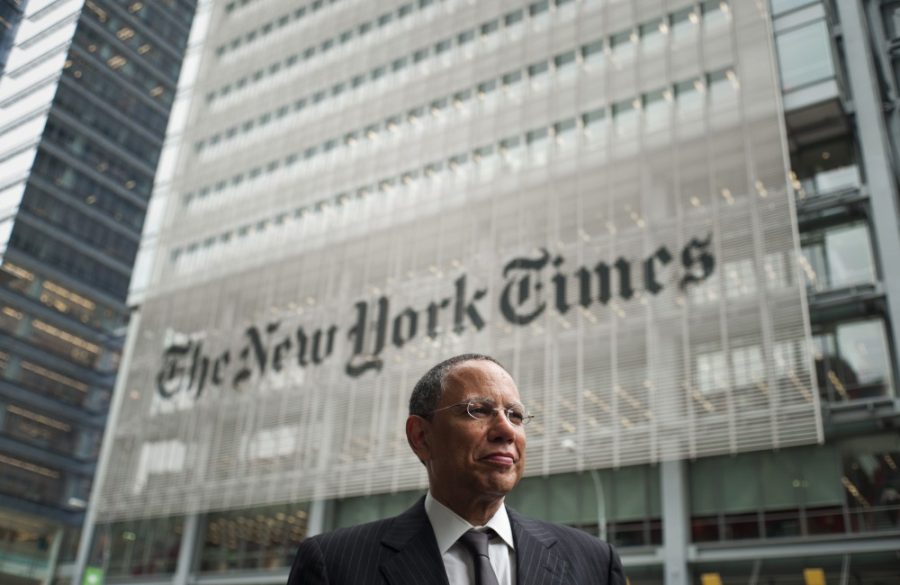Every year, the University of Arizona School of Journalism awards a different journalist with the Zenger Award for Press Freedom and invites them to Tucson for a banquet. This year, they’ve chosen to invite New York Times Executive Editor Dean Baquet to the dinner in October with journalism staff, students and others in the journalism community.
“We have given this award out to honor those for press freedom for about 50 years now,” said David Cuillier, director of the School of Journalism. “It’s so critical, especially now that we stand up for the right for people to have an independent press and media serving them.”
The UA School of Journalism has given this award annually to deserving journalists since 1954. The award is in honor of a New York Weekly Journal editor in 1734, John Peter Zenger, credited for laying the groundwork of the First Amendment after he was incarcerated for libel by the British authorities, as well as his wife, Anna Catherine Zenger, who helped run the newspaper during his time in jail.
“Press freedom is courage in journalism,” said Bill Schmidt, UA journalism professor. “There is so much skepticism about the role of the press that it’s important for us, as an institution and as a school of journalism, to celebrate those people and those organizations who represent and further what the role of the press ought to be in society.”
RELATED: Panel of journalists discuss fake news at SPJ event
Baquet has worked as an executive editor for the New York Times since 2014. Before ever working for the Times, Baquet was a reporter for the Times-Picayune in New Orleans and then the Chicago Tribune, where he covered politics and investigative topics. Later on, he was an editor for the Los Angeles Times and Washington bureau chief for the New York Times. Baquet has held several positions within the Times as metropolitan reporter, special projects editor, managing editor and national editor.
Baquet was recognized for his investigative reporting in 1988, winning a Pulitzer Prize for his work covering the Chicago City Council. He was also a finalist for the Pulitzer Prize again in 1994.
Cuillier, along with other faculty members, was part of the board who discussed potential winners of the award out of many nominees.
Cuillier said a press freedom tracker, made by the Committee to Protect Journalists, has counted more than 70 attacks in the U.S. on journalists just since January. About 20 of those attacks have been physical.
“These are important times in journalism,” Cuillier said. “It’s critical we honor people like Baquet who are working hard to hold the government accountable.”
RELATED: UA offers connections even after you graduate
Schmidt met Baquet while running the New York Times office in Chicago when Baquet reported at the Chicago Tribune in the ‘80s.
“He’s an amazing editor and journalist,” Schmidt said.
Both Baquet and Schmidt worked together as a team in the mid-1990s, when Baquet was national editor at the Times and Schmidt deputy national editor. The two worked together on and off for about 35 years.
“The New York Times is founded on the civic impulse that is at the heart of journalism,” Schmidt said. “It’s not a question of being for or against somebody or being the enemy. It is about being rigorously skeptical and doing whatever you can to inform the public debate and public issues. That has been at the heart of Dean Baquet and his career since the beginning.”
Follow Angela Martinez on Twitter








